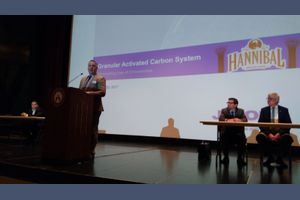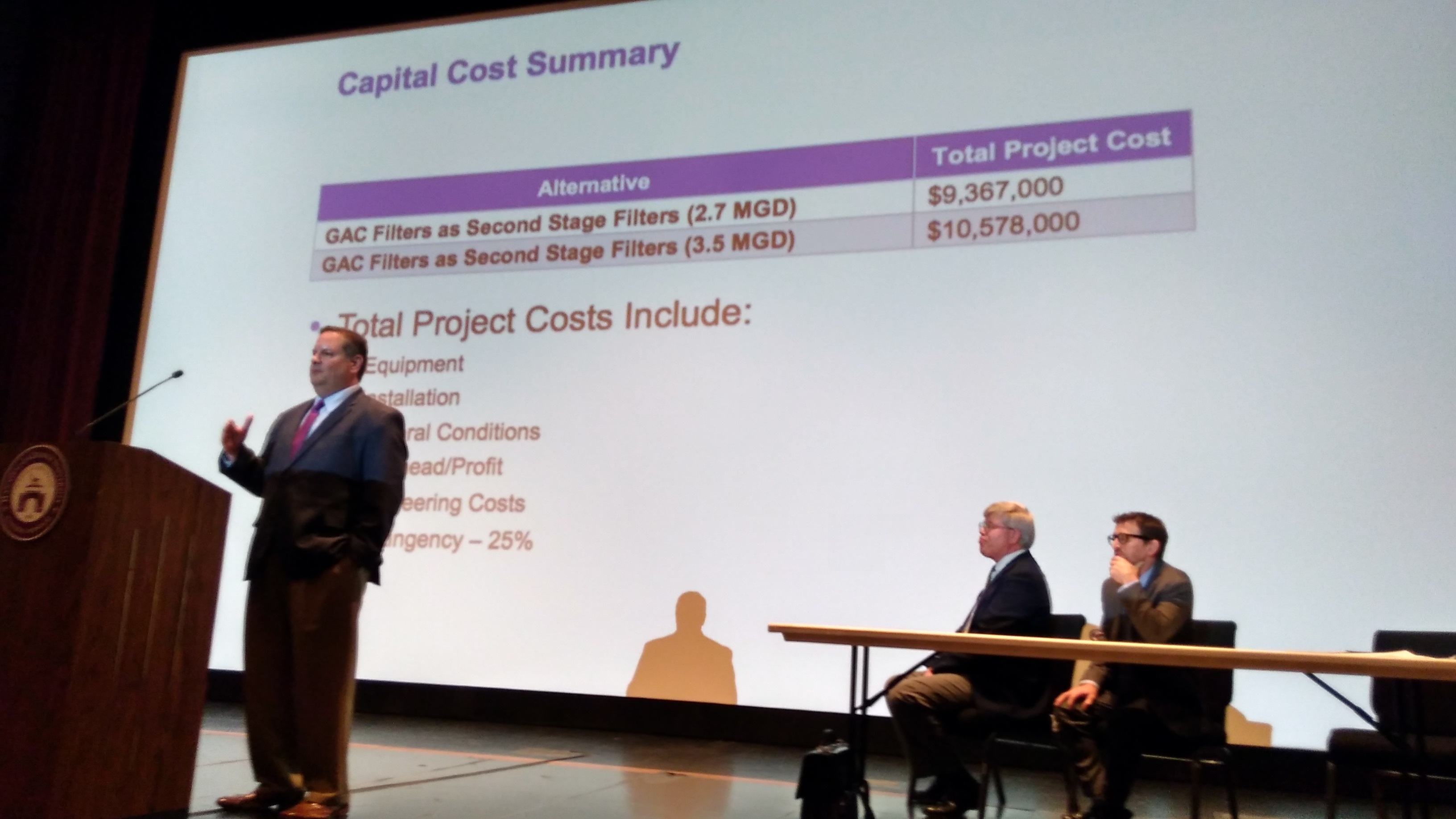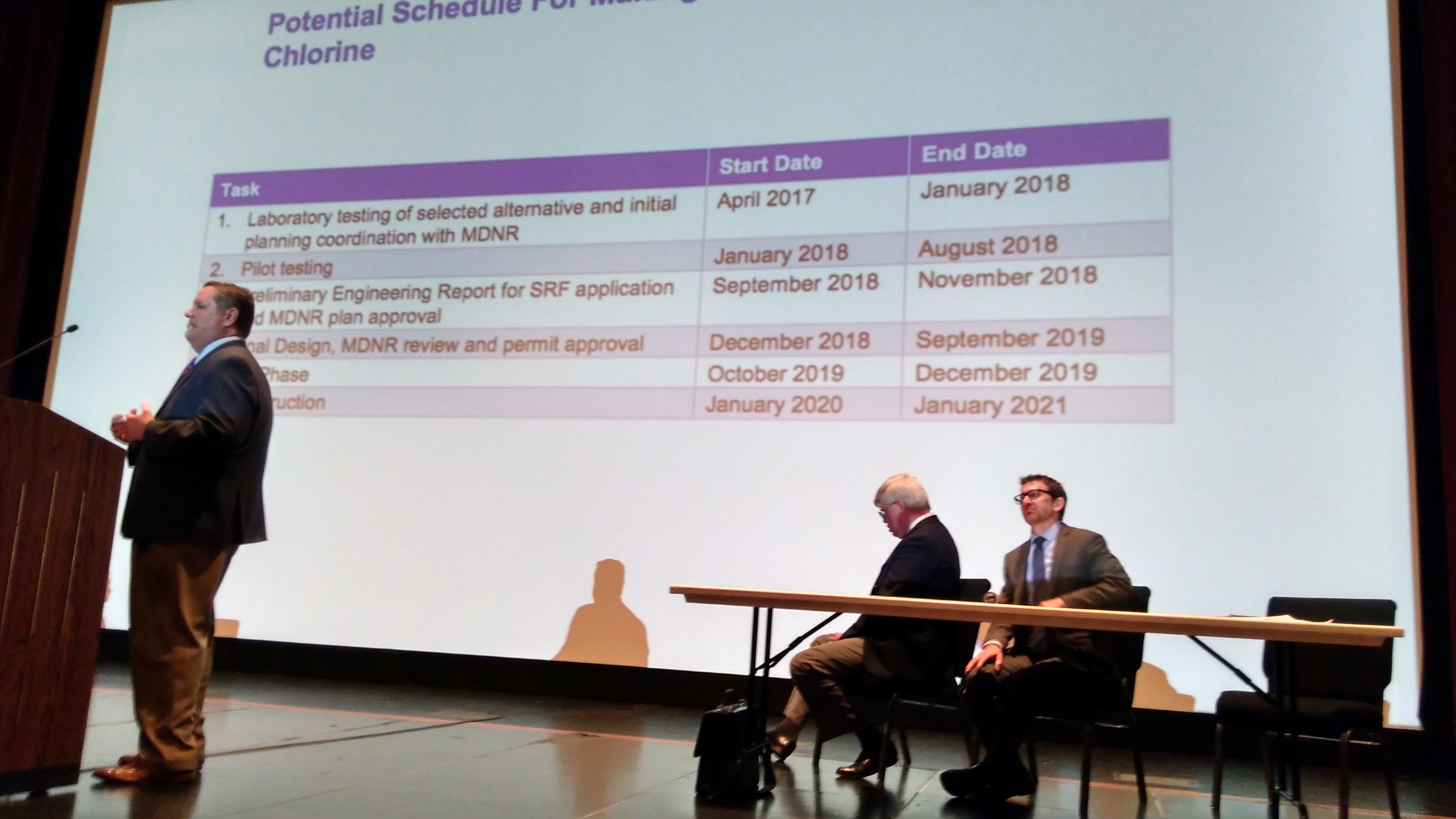


7 years, 1 month ago by Jim Dewey
City could be forced to switch if voters approve Prop 1
Hannibal voters who want to know more about Proposition 1 can find information on the city's website.
If approved - Proposition 1 would require the Hannibal Board of Public Works to remove ammonia as a disinfectant from the city's water supply. Last fall, the City Council commissioned an independent engineering firm - Jacobs Engineering - to study the cost and feasibility of implementing a Granular Activated Carbon or GAC system as an alternative to the current treatment process which uses a small amount of ammonia which then creates Chloramines. On Wednesday night - Jacobs presented the results of that study to the public.
 The study shows the cost of installing a GAC system will be as high as 10 million dollars and will take about 4 years to complete. It would add about $7.72 to the average family's monthly water bill, which Jacobs engineers admitted was likely a high number. That is at a production of 3.5 million gallons of water a day (MGD) which is the city's current output level. With the loss of Ralls County customers - that will drop to about 2.7 MGD which would also lower the average cost.
The study shows the cost of installing a GAC system will be as high as 10 million dollars and will take about 4 years to complete. It would add about $7.72 to the average family's monthly water bill, which Jacobs engineers admitted was likely a high number. That is at a production of 3.5 million gallons of water a day (MGD) which is the city's current output level. With the loss of Ralls County customers - that will drop to about 2.7 MGD which would also lower the average cost.
Environmental Investigator Robert Bowcock, who is with Erin Brokovich's organization liked what he saw and heard from the report, but he questions the timeline set by Jacobs. Bowcock said "Four years for a compliance schedule on something like this is very high."
Bowcock said several cities are installing these types of systems and the only reason for a delay, he believes, is that with so many cities installing these systems - there may be a manufacturers backlog. But Bowcock, who has worked with a number of communities installing GAC systems said, "by way of example, in Morristown, New Jersey, we put a system like this in in about 6 months.
With the passage of Prop1, the HBPW will have 90 days to remove Chloramines from the water, which means the city will be out of compliance with state regulations until the new system is installed. A representative from the Missouri Department of Natural Resources was at the presentation and Bowcock said he liked what he heard in that MODNR will negotiate a compliance schedule, "that they will look at the approval for custom reactivation." Bowcock said, "Jacobs pretty much wrote the book on that." Overall, he said MODNR was very encouraging.
The study will remain online until after the election at hannibal b p w dot org.